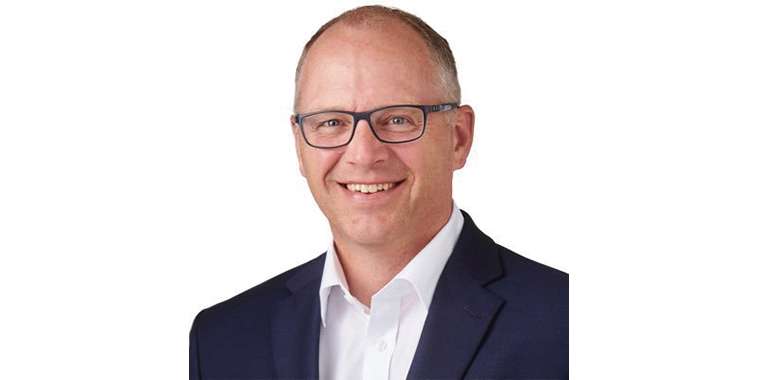By Peter Squire
While there may be many Monday morning quarterbacks after a very close civic mayoral election for the city of Winnipeg — and lots of post-election analysis to try and figure out all that transpired including a low voter turnout — the reality is we have our quarterback in successful winner Scott Gillingham who as of this past Tuesday will lead the team of 15 city councillors to make progress on moving the yardsticks forward.
The team is familiar to our new mayor, with the exception of Evan Duncan who is the rookie city councillor for Charleswood-Tuxedo-Westwood. Former city councillors, who were not on the 2018-2022 city council, are back, with veteran Russ Wyatt in Transcona and Shawn Dobson in the St. James ward newly realigned in 2018. All 12 incumbent city councillors won handily in most cases, while Markus Chambers and Devi Sharma were both acclaimed.
Right off the hop, Mayor Gillingham is indicating he will reach out to all city council members to develop a strategic plan with a clear set of priorities to move forward on. There is one returning city councillor, Russ Wyatt, who was a strong advocate in this respect as he put a motion forward in 2016 stating that “the City of Winnipeg Council immediately undertake amongst its members, and inclusive of the mayor, the writing of a strategic plan which will provide leadership and direction on setting public policy priorities between now and the next general election of 2018.”
Since that time, a new governance review has taken place with Waverley West City Councillor Janice Lukes, who backed Gillingham for mayor, being very active in calling for governance changes on how we run our city to make for a more collaborative approach between the mayor and all city councillors. In fact, as part of Gillingham’s election platform, he is committed to limiting EPC to six members including the mayor, and keep EPC briefings to select issues.
This is in keeping with the Winnipeg Regional Real Estate Board’s fourth civic election plank on team-building and leadership. Through the immediate strategic plan priority-setting process with all city councillors representing their wards across the city, EPC will need to build more consensus and should stimulate more buy-in and unity at city council.
Another issue the Winnipeg Regional Real Estate Board identified in “The Voice: A Conversation with 2022 Mayoral Candidates” podcast series, was on the strategy to retain a younger demographic and attract newcomers who are willing to stay and settle down here. We don’t want to see the city as a temporary stop where young people and newcomers end up moving on to another province.
In this respect, Gillingham’s response in the podcast was to work hand-in-hand with the provincial and federal governments in a coordinated effort to provide the opportunity for good jobs and a promising future. A further question on what strategies he will undertake to attract business investment to Winnipeg brought out a few key points. He said we need to make it easier for businesses to do business and thrive here. An example he has talked about before, and put additional staffing support behind, was in the 2022 Balanced Budget Update with his commitment to making the permitting process faster and easier.
Gillingham also wants to make sure business has access to labour markets which, in turn, relates to keeping and attracting young, talented workers to the city. Key to that, he stated, is people need to be living and staying in Winnipeg, so affordability becomes central to this goal so that workers can purchase their own home. He concluded by saying we need to remove barriers that slow economic development, work with Economic Development Winnipeg, and also the Province of Manitoba’s new Economic Advisory Council on Competitiveness, to identify sectors that Winnipeg is strong in and assist in promoting them.
On the housing supply front — which REALTORS® across the entire country are advocating for to all levels of government — the new mayor is embracing our call as he understands how keeping and building a healthy supply of housing puts a lid on demand and preserves housing affordability. In order to do this, he says we need to make it easier for development to happen and, therefore, get more housing on the market.
On the podcast, Gillingham touted Complete Communities 2.0 which is the recently approved growth, development and land use plan for Winnipeg. The Winnipeg Regional Real Estate Board is in favour of the plan since it strategizes on how we will grow and has metrics that will measure our progress to get to where we need to be. As Gillingham says, “Now is the time to follow through and implement this plan so we can have a balance of infill and new greenfield development.” Another important point he made in this regard is that we need to know what water and sewer capacity we have to build a denser city. This will allow us to know where and how we can do infill development within the city.
Speaking of using metrics to measure outcomes, in addressing the last of our podcast questions, Gillingham’s election platform called for ”key performance indicators (KPI) for City Hall to unite behind”. It will measure outcomes, not inputs, and it mentions one may include total housing stock per capita.
To end with another sports analogy, our new mayor played high-level junior hockey and was not afraid to get in the corners to get the puck and lead his team to victory, so as we have already seen him demonstrate as Chair of Finance — working through major efforts on creating and shepherding through the City of Winnipeg’s first multi-year budget (2020-2023) — he will not shy away from dealing with the tough issues facing our city, such as crime and homelessness.
Congratulations to our new mayor!
Peter Squire is the Winnipeg Regional Real Estate Board’s Vice-President External Relations & Market Intelligence.



